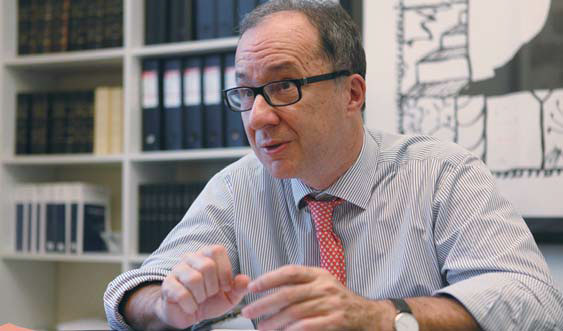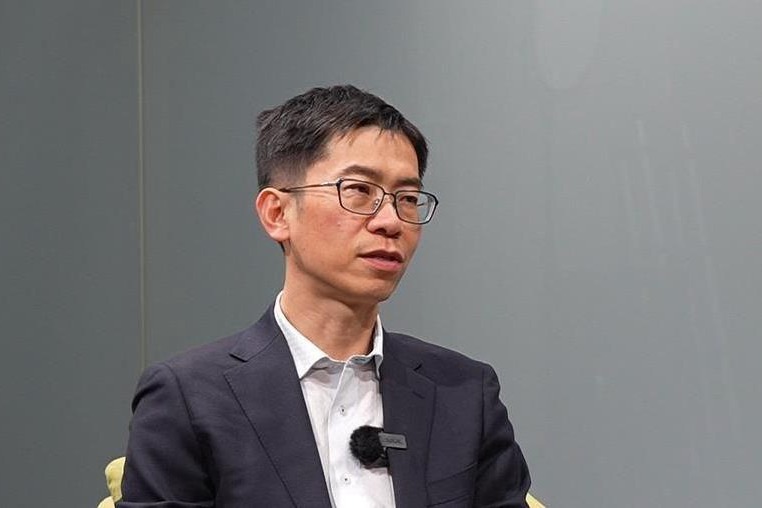Growth does not preclude caring for climate

Weight of president Xi's presence at paris summit seen as evidence of China's seriousness on issue
President Xi Jinping's presence at the climate summit in Paris underlines China's intention of playing a leading role on the world stage, a veteran China watcher says.
"Xi's presence is highly significant, pointing to the country's commitment in tackling climate change", says Bernard Dewit, chairman of the Belgian-Chinese Chamber of Commerce.
| Bernard Dewit, chairman of the Belgian-Chinese Chamber of Commerce. Gao Shuang / China Daily |
"It also illustrates how important China views the summit to be."
By Nov 24, summit organizers have confirmed that 147 global leaders, including Xi and US President Barack Obama, will be present at the summit, from Nov 30 to Dec 11.
At the last summit of its kind, in Copenhagen in 2009, China was represented by then-premier Wen Jiabao.
Over the past few months China and the US, the world's biggest economies and the largest carbon emitters, have worked together to reduce carbon emissions, and that, too, is greatly significant, says Dewit, talking to China Daily in the offices of his law firm in Brussels.
"That did not exist previously, and it makes me more optimistic about the outcome of the conference, because if two of the biggest countries have such a strong commitment, then the result has to be good for everybody."
China is going through tremendous changes in its environmental policies, he says. During the early years of reform and opening-up China concentrated on increasing production and creating or rehabilitating industries, the ultimate aim being to lift people out of poverty, he says.
"What we see now is that China has reached a certain level of development and can focus more on the well-being of its citizens in daily life, not only in the cities but in rural areas, too."
China is now wrestling with climate change and doing its utmost to protect the environment, and this presents great business opportunities, he says, adding that this is important because some people wrongly see a false choice: one between rapid economic growth with largely uncontrolled pollution or little or no economic growth in an environmental nirvana.
"That is utter fiction; you have to be realistic, and that is one thing I find really encouraging about the Chinese government. It is realistic."
China has now struck the right balance between development and environmental protection, he says.
"One needs to be mindful that countries like China are still developing. The idea is to make efforts to reduce pollution, to better protect the environment and to work for coming generations."
China's 13th Five-Year Plan (2016-20) pays a great deal of attention to green development, he says, again illustrating the leadership's commitment to the issue.
"The idea is to do things at a national level, at a provincial level, and with cities and so on."
The country's commitment to green development will result in it and Europe, which has developed high-technology environmental protection over the past 20 years, working more closely together, he says.
"The EU, with its high technology in some fields, can be useful to China."
China has made great strides in this regard, and ever more Chinese companies are doing research and development in environmental protection.
"There can be nice complementarity between Chinese companies and European companies in this field."
Apart from climate change, one of the biggest joint challenges that China and Europe face is negotiating a bilateral investment treaty, Dewit says.
"Let's hope that after the climate change conference, there is more openness that helps deliver an agreement next year. This is not easy, because the talks are in their early stages, and at the moment Europe is preoccupied with the issues of security and refugees, and these things create certain tensions."
On whether these issues will cast a shadow over the climate change summit, Dewit says: "I don't think so and I hope not. I think the Paris conference will not only go on; it has to go on."
There is no doubt that China's stance on climate change is different to what it was in Copenhagen six years ago, and the country is much more open and willing to play a key role, he says.
Dewit says he recalls that 10 years ago when the former French prime minister Michel Rocard urged China to take more responsibility in the world, its response what that it was "only a developing country".
"Now your country is playing a bigger role, and is more active internationally."
Contact the writers through fujing@chinadaily.com.cn
(China Daily European Weekly 11/27/2015 page8)
Today's Top News
- Japan tempting fate if it interferes in the situation of Taiwan Strait
- Stable trade ties benefit China, US
- Experts advocate increasing scope of BRI to include soft power sectors
- New engine powers cargo drone expansion
- China to boost green industry cooperation
- Manufacturing PMI rises in November































